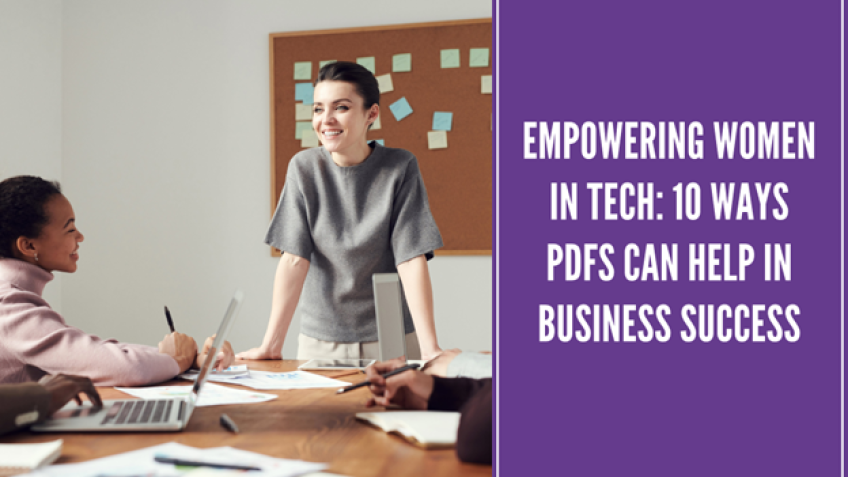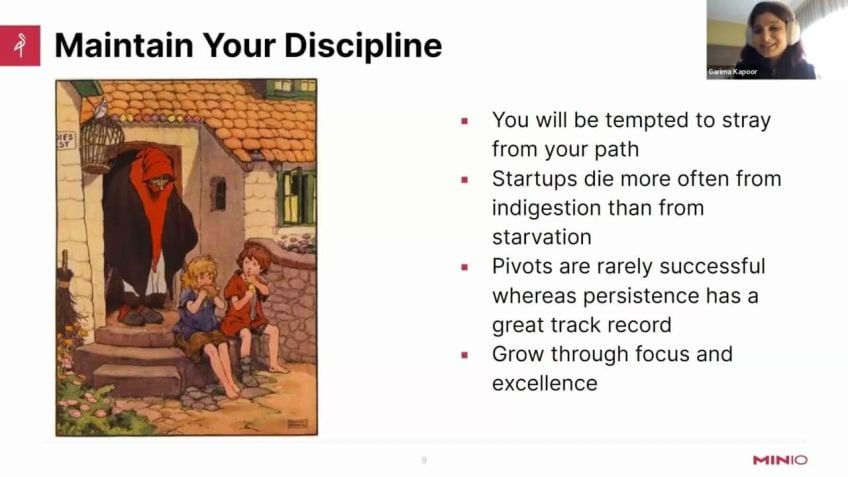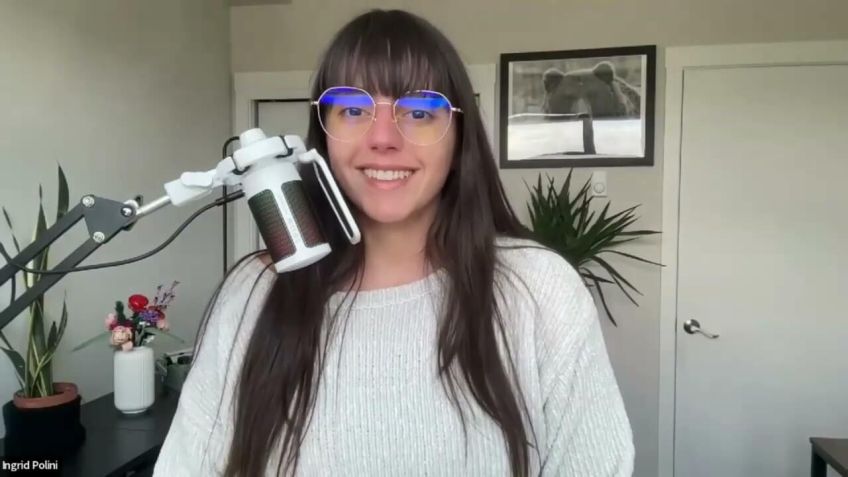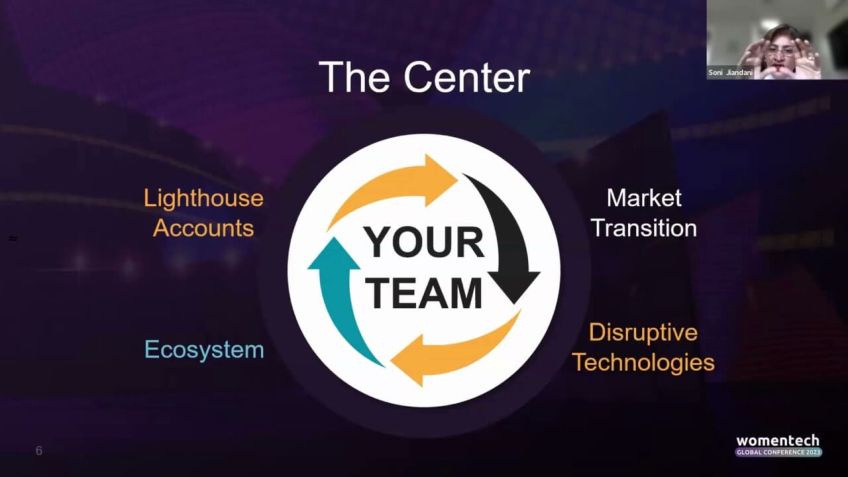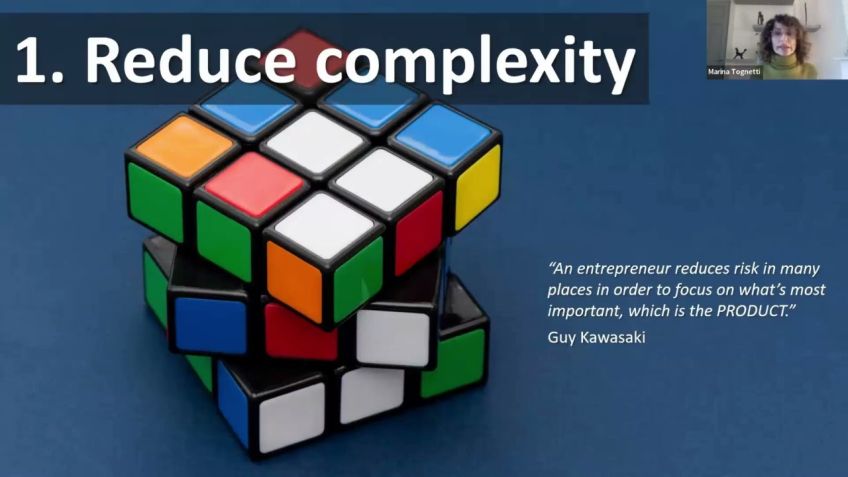Stephanie Limage - Economic Recovery & Social ImpactApply to Speak
Overcoming Challenges to Build a Future with Social Impact
When it comes to driving innovation and creating social impact, starting from scratch can be daunting. This piece delves into the journey of one entrepreneur, the founder and CEO of Lima Media Group and Give Share humanitarian software and mobile application, and how she transformed humble beginnings and significant challenges into a thriving, globally recognized business.
The-Origin Story
Starting a business with nothing more than a MacBook and a 3G internet stick in the aftermath of the 2010 earthquake in Haiti, one might say that the cards were stacked against our protagonist. Housing in the area was scarce, with poor amenities and uncertain power supply, leading to a situation where her Mac had to be charged at a local gas station that also doubled as a fried chicken joint. Despite these hardships, after nine months in Haiti, she landed her first client, and Lima Media Group was born.
The Journey to Impact
Lima Media Group started as an artist collective in Vancouver, BC in 2008 and eventually morphed into a group of companies and media properties working together to create social impact. The Group provides a range of services, including full production and creative services, social impact and humanitarian consulting, R&D strategy development, and job creation tools and training. Today, Lima Media Group operates nationally in Canada and has established hubs in Port Au Prince, Haiti and La Prada, Buenos Aires, Argentina.
Tackling Poverty through Innovation
The Lima Model
One of Lima Media Group's main goals is to create sustainable social impact solutions to offer marginalized individuals new opportunities and break their cycle of poverty. A particular focus is on creating equity and inclusion by harnessing diversity in the workforce: immigrants, newcomers, refugees, and those living on the margins of society.
Case Study: Media Mentorship Programs
In the case of Lima Media Group's media mentorship programs in Haiti and Argentina, the organization provided mobile phones, cameras, laptops, and other media tools to participants. These initiatives have supported individuals who had no prior access to training, enabling them to produce content, control their narrative, learn project management, and more. The programs also provided a sustainable income stream and created opportunities for participants to start their own ventures.
The Power of Collaboration
Creating Unity for Greater Impact
The idea of forming partnerships and taking joint action is central to the Lima Media Group's approach. An important component of this strategy is working with larger organizations that can provide an 'umbrella' to operate in complex and precarious areas.
Help Portrait: A Successful Collaboration
A notable example of successful collaboration is Help Portrait, a worldwide movement founded by celebrity photographer Jeremy Cowart, involving over 7000 photographers. This initiative, which offers free professional-grade portraits to people who might otherwise not have access to them, revealed the potential benefits of setting aside agendas and working in unity for a common cause.
Solving Complex Challenges through Collaboration
To resolve complex challenges such as the global crisis we face today, the world needs to pivot together and collaborate. By combining resources and caring for marginalized individuals, we can create more inclusivity that lifts everyone, thereby strengthening economies.
Using Technology to Improve Lives
Introducing Give Share: Humanitarian Software and Mobile Application
Recognizing the disconnectedness of support systems for people experiencing homelessness, Lima Media Group developed Give Share, software that collects valuable community resources in a single location. Currently, Give Share tracks the status of free to low-cost meals in Vancouver, providing ongoing updates and acting as a 'central nervous system' for community coordination and humanitarian response.
Moving Forward Together
Although the challenges we face are immense, the potential for collaboration and positive social impact is even more significant. In the face of a global crisis, the power of mutual entrepreneurial collaboration can help us overcome our differences and build a better world. As the journey of one entrepreneur has shown, determination, innovation, and a true desire for social impact can lead to extraordinary results.
Conclusion
The story of Lima Media Group is a powerful reminder that we all have the potential to create meaningful, positive change. Regardless of your circumstances or resources, it is possible to make a significant impact and help shape a better future for all.
Video Transcription
All right. So we're going to get started. Ok, sorry about the replay there. And so an introduction step. I'm the CEO and founder of Lima Media Group and give share humanitarian software and mobile application.And I'm joining you here today from Vancouver British Columbia on the unseeded territories of the mule, Squamish and Slave. The Truth Nations. And so a introduction is that I started my business um with a Macbook and a three G internet USB stick, no money, no prospects but big dreams in Port Au Prince Haiti post 2010 earthquake. And so I couldn't afford to generate. And my apartment was not fancy. It had cockroaches. In fact, I slept on the floor due to uh bugs and then experienced more bugs which was very glamorous and I had no running water and I had to haul it with buckets and my power was given uh whenever the government decided to provide it. So I found myself charging my Mac at the local gas station which also doubled as a fried chicken joint. And so it wasn't until I was in country in Haiti for about nine months. I landed my first client and it's been 11 years uh countless awards and many sleepless nights and acts of pure faith. And here we are. So it was a struggle party and so who am I? I'm a multi award winning social and tech entrepreneur.
I am an international speaker, a G 20 Y A delegate uh with the Canadian delegate. Part of me, I have an international background in R and D film production, humanitarian, humanitarianism, innovation, governance, technology and law. I'm also the founder and CEO of Limaj Media Group uh society, which is a not for profit organization that operates at an international level and we produce inc create media, mentorship and social impact projects. And so I believe in using business and innovation as a way to create positive change and social impact. And so Lima Media Group is a group of companies and media properties under one banner uh with the award winning Not for Profit arm as I mentioned. And so we provide uh full production and creative services as well as social impact and humanitarian consulting, R and D strategy development, implementation, mentorship, job creation and tools and training. And so we originated here in Vancouver BC in 2008 as an artist collective, we turned into Mimma Media Group after the 2010 or pardon me Haiti earthquake. And uh we are located in the Center for Social and Economic Innovation here in Vancouver BC. And we have established hubs in Port Au Prince Haiti and La Prada Buenos Aires, Argentina, as well as operating on a national level here in Canada.
And so we provide sustainable social impact solutions as well as employment for a marginalized individuals which fosters social change and leads to an exit from the cycle of poverty. And so let's move forward. So the the big question of the day, so what can your start up company or technology do to make the world a better place while supporting economic recovery? And so that may seem like a very overwhelming question. And so however, I can assure you that it is entirely possible. So I'm gonna share with you a few things that I've learned and perhaps can inspire you uh to shape your own strategy. And I'm also very open to collaboration. And so how can we do this? And so I feel that we can do this through equity and inclusion and leveraging the power of diversity such as immigrants, newcomers, refugees, and those on the margins. And so how can we accomplish these goals? So providing tools, equipment, training and expertise, as well as workshops, knowledge transfer, mentorship, support and access to the internet. And so here's a case study and an example which would be our media mentorship in Haiti and in Argentina, which is investing in human capital.
And so by providing mobile phones, cameras, laptops, and other media tools which act as a passport to exit out of the cycle of poverty, my not for profit, the Limaj Media Group Society has been producing and deploying award-winning media mentorships in these regions. And our programs have supported individuals who otherwise have no access to training, to produce content and to control their own narrative while learning project management and much more. And so, furthermore, our programs provide a sustainable income stream while participants are learning and growing.
And so we've found that this alleviates some of the pressure off of the participants. And in addition, we offer incentives as well. And so those who participate and graduate from the program are offered additional paid subcontractor work. And in a few instances, some of our participants have gone on to start their own ventures. And so the call to action is that, you know, we're not a huge multinational. Yes, we've scaled internationally. But um you um a, a Rogers or an Amazon, you know, and so if we're able to make and create social impact, you can do as well. And so I feel by loving the ones in front of you and reaching out to individuals or organizations that you feel are suitable beneficiaries that is a, a very step, a step in the right direction. And so my call to action is for large corporations and sme s that are able to come together in unity and break down a list of priorities and find common ground and take action. And so many of you may have retired equipment that would be otherwise discarded or has maybe become obsolete. And so those are actually very valuable tools for these types of programs because they have the potential to change lives when they're placed into the right hands.
And so the answer is simple, you know, it's the umbrella effect. And so I am a longtime believer and adopter of not only agile methodologies, but in order to solve complex challenges, I feel that we need to create social impact. And so with a particular emphasis on those who are living on the margins. And so what I've learned is that alone, I can only accomplish so much. But when my projects join forces with others and I tuck under the umbrella of other organizations to create unity and governance framework, which are nonpartisan to address human suffering, amazing social impact can happen. And so I'll move on to another case study and that is what our um pardon me uh with uh with help portrait. OK. And so I'll just show you a brief video here. What is he
portrait? Um What
is hell portrait? Well, help portrait uh up here in Manco. Anyways, it is a
group of photographers. We get together and we try and give something back um using our time and equipment. It's
very simple. You find somebody in need, take their picture and then print it out for them. It's as simple as that, I think hell poetry to me is a fantastic movement. Of photographers and other artists such as makeup artist and hair um coming together for us, you know, it's a way of giving back
a portrait is a way for everybody to feel beautiful. It's a way to capture images of life unfolding, whether it be hard, whether it be easy. This is one of the events that the staff in the OK. So we'll just stop there and so help portrait is where 12 years ago, I cut my teeth with not for not for governance when I co-founded help Portrait here in Vancouver BC. And so is the movement of photographers using their time equipment expertise to give back to those who are less fortunate. And so, uh you know, it's become a worldwide movement. It was founded by celebrity photographer Jeremy Cowart, and there's now over 7000 photographers involved.
And so um what I've learned by um producing how portrait in the initial days um because I've now relinquished that role to um a different um is that I learned by putting aside agendas and partnering with larger organizations that, that provided that umbrella I was referring to, to operate in precarious and complex areas.
And that was really critical for the success because the uh event that we produce is in Vancouver's downtown East Side. And it is uh a very complex uh uh community full of a lot of marginalized individuals. And in addition, we scaled into the BC Children's Hospital the following year And so this has been going on for some time now. And um I've also learned that when you have the nonpartisan event, it creates more social impact. And so we have had faith based organizations partnered with people from diverse backgrounds and a variety of different organizations that all have different ethos and mandates and charters. Um But when you come together on an event and you relinquish that and you put that down to just solve a problem or to do good. Um I feel that that was a, you know, a huge key and a driver in the success of this, this NPO that has been sustaining for 12 years now. And so, um the annual events have um been a success for many years and, you know, people come together and support the community through complex challenges, right? And so, you know, how are we actually able to solve complex challenges, you know, are we capable of solving complex challenges?
Yes, I believe we are and our limitations are ourselves. I feel I also feel our greed, our motivations and resources utilize for self serving agendas are, are barriers and so it might not be nice to hear, but we can walk away from today, which is Inspire Day here at the Global Conference. And uh we could keep going the way that we have been going or we can choose to pivot together and collaborate. And so what does that look like that looks like? With proper legal governance program implementation, combining resources and caring for those on the margins. When you care for those on the margins and those who aren't having Maslow's hierarchy of needs met, it builds up the economy because it raises and elevates everyone and it makes the economy and uh you know, all of the business that we're doing more inclusive for all. And so um another example is my latest start up which is gives share humanitarian software, mobile application. And so that is uh uh very, very close to my heart. And while creating infrastructure um to help house people who experience homelessness to find access to long term shelter, the Metro Vancouver Homelessness strategy from 2012 to 2021 has relied heavily on community partners such as NGO S and humanitarian organizations for providing immediate relief.
And so these community partners organize and provide services such as shelters and soup kitchens while delegating resources to those who uh uh who are experiencing homelessness. And so, although these partners work with the city, they're all independent of each other. And so causing the support system for people experiencing homelessness in Metro Vancouver and beyond to be disconnected. And so Limo Media Group has recognized this disconnect as a growing problem and created the software of gifts share to collect these resources in one singular location and is now scaling into nine other major metropolitan cities here in Canada. And so gives share was created to help mitigate risks during and after humanitarian crises by providing humanitarian solutions and architecture and so gifts share humanitarian software and mobile application helps to unify and manage the flow of data and updates of free to low-cost meals, shelter, and other community resources all in one location.
And so during the COVID-19 pandemic, um we developed and currently manage a public Google map that tracks the status of free to low-cost meals here in Vancouver. And so the goal was to provide ongoing updates to reflect the statuses, meal program, meal programming um throughout the pandemic.
And so, GHA acts as a central nervous system for real time communicated uh community coordinate humanitarian response while managing community resources such as food, shelter, access to justice, humanitarian governance and support, tools and training. And so when there's a humanitarian disaster, the cluster approach is the best practice for international humanitarian aid and architecture. And so with spending over a decade producing humanitarian based programs and consulting in this space uh post 2010 earthquake in Haiti and mitigating risks surrounding urban food security.
Um We've continually observed and listened to stakeholders and have found that there was a lack of humanitarian architecture and infrastructure in the urban context as well as uh other major municipalities. And so give share is not only timely, it's necessary to implement and scale to build back better and have healthy resilient cities. And we use technology and innovation to shape the progress and delivery model of humanitarian action, which is saving lives, alleviating human suffering and mitigating the economic and social impact of disasters such as the pandemic. Ok, so humanitarian action means saving lives, right?
And so there are many ways of implementing this and it can be through partnerships, donation of retired to NP OS NGO S who have proven track record of deploying programs and you know what the pandemic has done is it has exposed underlying issues and challenges and some of these issues we were aware of and some are new to us.
So an example is my experience in Haiti post 2000 10 earthquake. And we were all aware that Haiti was in dire need of humanitarian support on an ongoing basis due to systemic oppression and many other variables. But we knew that there were millions of people suffering there needlessly and still are today. So just like where we're at right now, the current aftershocks are rippling through our planet, our global economy, our families, and uh you know, we're, we're all aware that we're in a crisis and that we need to recover. But as a global community, we're capable of building back better from this. And we know that there are many viable solutions and technology, technologies available in order to resolve these challenges that we're faced with. Yet, we can't seem to get past our differences to achieve common goals and create much needed social impact that can be achieved through mutual entrepreneurial collaboration, which is combining resources and unifying. So we're all connected, sharing the same air planet, oceans and water.
And I feel it is our responsibility to be caretakers and of those who dwell on it as well. So you know, going back to Haiti post earthquake, what earthquake did as I mentioned was, it revealed a copious amount of human suffering and magnified to a degree that was unmanageable to witness. And so building in homes collapsed, leaving residents with no place to go, living in tents, encampments, encampments all over the, all over the country. And so it was a deep wound and it had a band aid on it and it was ripped off, you know, and so what what happened was it just, it revealed that it revealed this issue that we needed to be addressed and that's what the pandemic has done. It is revealed this issue, you know, and some of some of the, some of us during the pandemic have scaled, some have lost, some have gained, some have benefited and some have used it as an opportunity and um some, some of us are stuck as well, right? And so what can we do to find support? And you know, we need to carry this together to resolve complex challenges through innovation and collaboration and put aside our differences. Yes, we need to make money. Yes, we need to work at the bottom line.
But you can pivot your business model and actually be more profitable while elevating others. And so this is what leads the chart and global recovery, which is training mentorship and caring about as corporate leaders. You can recognize the links between humanitarian action and broader aid policies to shift priorities and internally to better support the global community. So, corporate social responsibility is one avenue of adoption that's become mainstream. But if you could take the resources of Amazon and combine them with discovery and Thompson routers and then work with NP OS and NGO S to address the needs to build up new models for collective collaborative, social impact, think about what could be achieved. And so we we here at Limo Media Group and gifts share are open to collaborations, as I mentioned. And so I, I would love to encourage you to find support where wherever you can get it absolutely anywhere you can get it. The entrepreneurial journey is so isolating, sometimes you're home on a Friday night, everybody's out having fun. You know, sometimes you're worried about where you're going to find those resources. Just keep networking, keep being vulnerable and pitching, but make sure you do your due diligence, make sure that you're doing that research and find the right people that you can trust and don't stop dreaming. Don't stop dreaming.
You know, if I can build up from, you know, my crummy crummy apartment and my three G stick and charging my my Mac at the gas station. Then I have faith that you guys can do anything. So I just want to thank you and I apologize if I haven't left. But this is my contact information and you can reach out to me for your complimentary design thinking tool kit or to discuss potential collaborations. You can add me on linkedin and also on Instagram as well where I'm active. And I want to thank you so much for taking the time today um to uh tune into this talk and also um participate in this amazing event that we're doing. And um I'm very grateful to have had this opportunity to have met you and hopefully we can um drop our linkedin in the chat here. And um I, I think we've got, we've got two minutes. So I do apologize if uh if it, if it was a bit quick. So let me know if you have any questions and I'll drop in my linked in here. Oh, thank you. I really appreciate that and I apologize. I was going so quickly. Um I got a little tongue tied a few times but um hopefully, my heart has radiated to you and I, I mean that if you want to reach out, you wanna chat, um I'm open to booking 15 minute sessions with people and um you know, always looking, looking for new people to connect with.
Yes. So we just on boarded last week for data analysts and partnered with Montclair State University in New Jersey and they're doing their Capstone project and going through all of our data. And so we're measuring our impact in a lot of a variety of different ways. And we love Microsoft B I and I would be more than happy to talk to you about our approach with that and how we go about collecting data and how um we are able to iterate that in our annual reports. And um we, we have to be accountable in their annual reports um due to our, our uh some of our donors for the NPO worker sponsors. Um And so I like to measure things um for meal programs on how many tummies fed and for a mentorship programs, you know, how many people graduated were on boarded the impact through that. And so because we have a variety of different programs and program leaders and heads um because we've been going for some time now. Um There, there's a, a quite an interesting array of, of uh of data to, to look at. And so I'd be happy to share that report with you as well if you're interested in that. Oh, you're an stg martyr. Oh, hello. From Amsterdam. Amazing. That's amazing. I'm so happy.
I wish I could hear you guys, but I'm just, I'm happy to be here with you in the chat. Yes, please do. Um You know if, if uh you're interested in getting involved with the, the G 20 Young Entrepreneurs Alliance. Um you know, I've been a delegate for Canada um now for four years and now this year I'm a senior delegate in charge of um women's policy uh on a task force to curate policy for our federal and G 20 leaders. And so, um there's a lot of working groups that we're putting together right now and um if you're interested in being part of those brainstorming sessions to contribute um to the betterment of our economies through policy. Um I'd be more than happy to connect with you in that capacity as well. Yes, systemic change is, is fun to make, isn't it? And critical, yes, I'd love to hear more about all of you. And um I, I feel really privileged that you took the opportunity to listen to me today. It's humbling and it's really nice, you know, I, I know all of us we often um are just isolated doing our work, you know, and we're, we're not able to, to get out there and connect as much. So I love meeting new people.
Um I wanna be respectful of the time though um because it's over. So I think I should probably wrap up, well, you've connected to the right, the right individual here, Natalie. I am more than happy to give you any tips or connections. Um I really feel like we need to support each other. I feel that um you know, creating a, uh, arena of elitism and competition is very counterproductive. It's a, we, you know, we look at the news every day, there's something happening constantly. It's just if we join together and you're like, hey, I know this person or we have a friend that has a venture and, you know, yeah, you have to be cautious about who you're referring your, your, your contacts to. Absolutely. But, you know, uh, and start with preliminary discussions obviously. Um But um you know, moving forward, you know, my heart is to elevate and support people and um vice versa, like I need help too, you know, so that's why collaboration is so powerful. So, yeah. OK. Well, I've, like I said, I wanna be respectful um and um uh and not take up, take up too much. I don't know how this works, to be honest because, because it is my um my first time actually using this interface. Um and I like it. It's pretty cool. Yeah, but thank you so much. And again, please connect on linkedin, drop me a note so I, I can have AAA reference because we're all gonna be doing a lot of networking and um and we'll, we'll stay in contact. OK, bye. Thank you.

